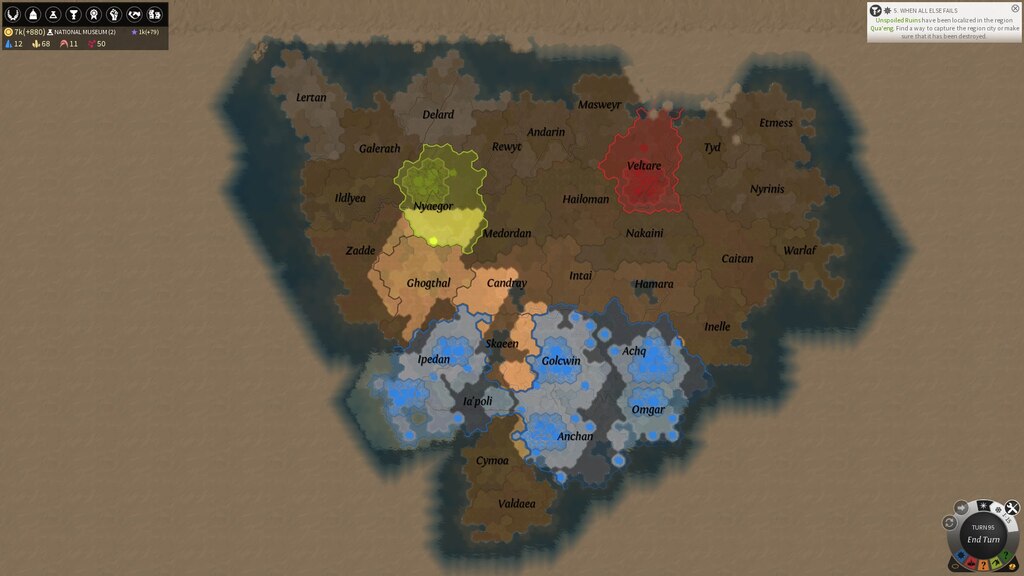@Boris Gudenuf It would certainly be an interesting read to see how your "perfect 4 historical strategy game" would look, but I'm certain it would be different from mine. I'm not going to write it down tough

There are quite a few suggestions already in the Ideas & Suggestions forum.
The first words at the top of the design document are:
"This is MY Perfect Game, not Yours. I don't expect anybody to agree with everything here. Shucks, a year from now I probably won't agree with everything here, but this where I would like to start from."
My observation about the impracticality and generally dissatisfying result holds regardless of whether it is an option or a default feature. It would just make for a disappointing option to a still awkward game structure.
Within HK's paradigm, you'd likely need hundreds of civs to pull off any sort of limited progression tree that doesn't feel like overgeneralized historical fiction that falls somewhere on the "racist" spectrum. I do not think 60 era-specific "civs" is nearly enough for what you are imagining and what others in this thread wish the Civ franchise would pull off.
My conclusion, based on her half a century of historical reading, is that every culture is composed of numerous individual traits - some borrowed, some borrowed and warped, a very, very few completely original. To have even a faint hope of representing any significant percentage of the possibilities, I'd think you would have to drop down from the entire Culture/Civilization to the Traits that make it what it is/was, and have your Progression based on the traits, not the entire Civ.
I tried making up an Outline to do that with the Civ V Civilizations, and discovered that even with that rather limited set of Civs to model (compared to the Possible Number of Civs) it couldn't be done without modifying your choices - there are simply some characteristics - some very Defining characteristics - of Cultures that are the result of such a peculiar combination of inherited Ideas and warping them according to another set of developed or inherited ideas that no system can handle it.
So, my (tentative) conclusion is that there would have to be a set of Defining Characteristics that are simply Standard to make a given Civ 'recognizable' to the Gamer. Most of them would be Cultural (Civic) rather than Technical.
For an instance, right now I would make the 'English' Defining Characteristic something like Rule of Law. As in, even their Divine Right Monarchs were required to Obey the common law of the realm, and that eventually included the laws being made by the Law-Makers
Who were not the monarchs, but Parliament. That colors everything about the Britons/English government types, internal politics, culture. Being a great sea power is neither peculiarly English/Britons/British nor even true of themselves for the first 5000 years of the game: the English under Alfred didn't start building anything recognizable as a navy until the early Middle Ages.
Using a combination of Defining Characteristics, 'Inherited' Characteristics, and Traits defined by the Terrain/Map/Climate would provide a huge range of possibilities, and in most cases you would start as one recognizable Civ and wind up as another Civ entirely, but not because you chose from a Blank Slate of candidates: because developments in the game and influences from the game narrowed your Choices down as you played.
Doing it that way, though, would be one Big Mother of a project, requiring some serious research to accurately identify hundreds or thousands of Inherited and Defining Characteristics and their possible In-Game effects and interactions. Starting this week it might be done in time for Civ VIII . . .

 There are quite a few suggestions already in the Ideas & Suggestions forum.
There are quite a few suggestions already in the Ideas & Suggestions forum.
